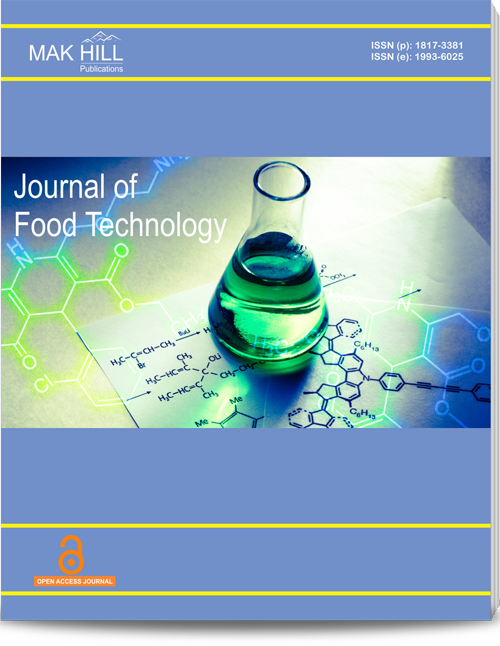
Journal of Food Technology
ISSN: Online 1993-6036ISSN: Print 1684-8462
Abstract
The effluent and receiving water quality from ten food processing industries, comprising beverage, confectionery and oil processing industries, in Ibadan metropolis was investigated. The heavy metal, minerals and physicochemical properties of the effluents and receiving waters were determined using standard methods. Results show that cobalt, chromium, copper, iron, magnesium, manganese, lead and zinc contents range between 0.46-2.75, 0.06-0.11, 0.01-0.02, 0.02-0.06, 0.20-1.81, 0.09-1.38, 0.11-0.14 and 0.07-0.29 mg L-1 respectively. Anions (chlorides and nitrates) , cations (phosphate, ammonium), biological and chemical oxygen demand were higher in the effluents. Sodium and potassium were the most predominant minerals in the effluents and receiving waters. Receiving water quality was significantly (p<0.05) influenced by effluent discharge by these industries.
How to cite this article:
K.O. Ipinmoroti , I.A. Amoo and S.A. Adebisi . Effluent and Receiving Water Quality near Food Processing Industries in Ibadan Metropolis.
DOI: https://doi.org/10.36478/jftech.2007.23.28
URL: https://www.makhillpublications.co/view-article/1684-8462/jftech.2007.23.28